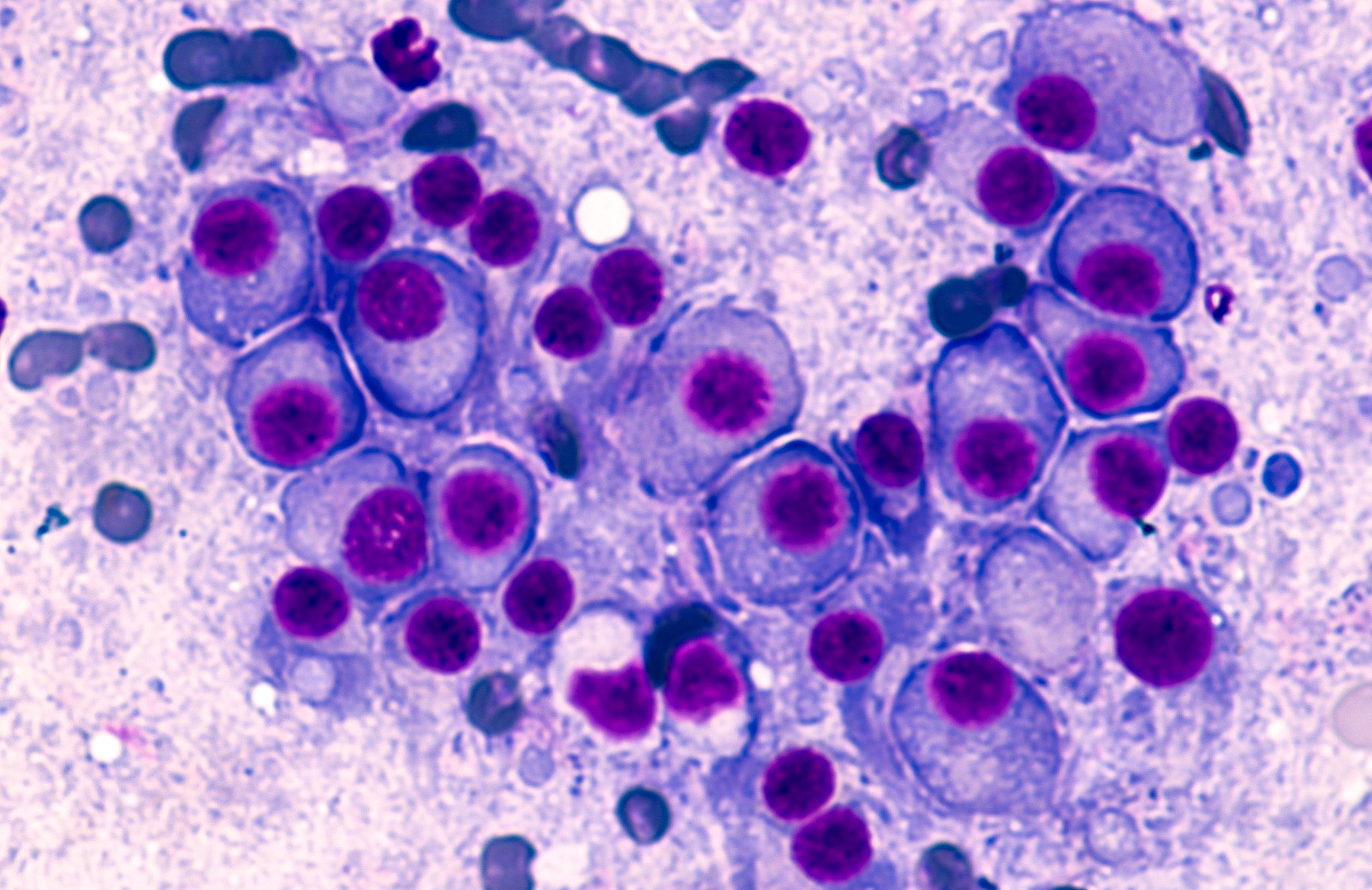FDA Expands Approval for Ide-Cel in Relapsed/Refractory Multiple Myeloma
Idecabtagene vicleucel (ide-cel) demonstrated a 51% reduction in risk of disease progression or death in patients with relapsed or refractory multiple myeloma.

- The FDA has approved idecabtagene vicleucel (ide-cel, Abecma) for the treatment of patients with relapsed or refractory multiple myeloma (RRMM) who have received 2 or more prior lines of therapy.
- Ide-cel is an approved B-cell maturation antigen (BCMA) chimeric antigen receptor (CAR) T-cell therapy for the treatment of patients with RRMM who have received 4 or more prior lines of therapy.
- Patients treated with ide-cel had a 51% reduced risk of disease progression or death compared with standard-of-care (SOC) regimens.
Ide-cel has been approved by the FDA for the treatment of patients with RRMM who have received an immunomodulatory agent, a proteasome inhibitor, and an anti-CD38 monoclonal antibody.1
Ide-cel showed a 51% reduction in risk of disease progression or death compared with SOC, and it is the first and only CAR T-cell therapy to show superiority over SOC in triple-class exposed RRMM.
"Regarding the primary end point of the study which was progression-free survival, with the extended follow-up, ide-cel continued to show a significant improvement in the progression-free survival with a median PFS of 13.3 months vs 4.4 months in the standard regimen arm with a hazard ratio of 0.49. That means a 51% reduction in the risk of progression and death," Paula Rodriguez-Otero, MD, PhD, University Clinic of Navarra, Pamplona, Spain, told Targeted OncologyTM.
“[Ide-cel] has demonstrated a progression-free survival benefit three times that of standard regimens in relapsed or refractory multiple myeloma, and we are now bringing the promise of cell therapy to patients earlier in their treatment journey,” said Bryan Campbell, senior vice president, head of commercial, cell therapy, Bristol Myers Squibb, in a press release.1 “This approval underpins our commitment to addressing the unmet needs of more patients living with multiple myeloma by improving upon the current treatment paradigm, and we remain steadfast in our pursuit of innovation and advancing cell therapy research to deliver potentially transformative therapies.”
Multiple Myeloma: © David A Litman - stock.adobe.com

This approval is based on findings from the phase 3 KarMMA-3 study (NCT03651128). In the study, ide-cel demonstrated a clinically meaningful and statically significant improvement in progression-free survival (PFS), the trial’s primary end point, compared with SOC at a median follow-up of 15.9 months. The median PFS was 13.3 months (95% CI, 11.8-16.1) with ide-cel compared with 4.4 months (95% CI, 3.4-5.9; HR, 0.49; P <.0001).
Moreover, 71% of patients treated with ide-cel achieved a response, and 39% of patients achieved a complete or stringent complete response (CR). Comparatively, 41% of patients treated with SOC achieved a response, and only 5% achieved a CR or stringent CR. Ide-cel also showed durable response times, with a median duration of response or 14.8 months (95% CI, 12.0-18.6) compared with 9.7 months (95% CI, 5.4-16.3) with SOC.
No new safety signals were observed, and the most common adverse events (AEs) were low-grade cytokine release syndrome (CRS; 88%) and neurotoxicity (15%). Grade 3/4 CRS was observed in 4% of patients and 1% of patients (n = 2) had a grade 5 CRS AE. Grade 3/4 neurotoxicity was observed in 3% of patients, and there were no incidences of grade 5 neurotoxicity.
In March 2024, the FDA's Oncologic Drug Advisory Committee voted 8 to 3 that the benefits of ide-cel outweighed potential risks in this patient population.
In 2021, the FDA approved ide-cel for the treatment of patients with RRMM who had received 4 or more prior lines of therapy.
REFERENCES:
1. U.S. FDA approves Bristol Myers Squibb and 2seventy bio’s Abecma for triple-class exposed relapsed or refractory multiple myeloma after two prior lines of therapy. News release. Bristol Myers Squibb. April 5, 2024. Accessed April 5, 2024. https://tinyurl.com/fxrxybvm
2. Abecma (idecabtagene vicleucel) reduced the risk of disease progression or death by 51% versus standard regimens in earlier lines of therapy for relapsed and refractory multiple myeloma based on results from phase 3 KarMMA-3 study. News release. Bristol Myers Squibb. February 10, 2023. Accessed November 13, 2023. https://tinyurl.com/yc85ubjn
Khouri Discusses Selinexor Dosing and Management Approaches for R/R MM
July 22nd 2024During a Case-Based Roundtable® event, Jack Khouri, MD, and participants discussed the use of selinexor with dose modifications to manage toxicity in patients with relapsed/refractory multiple myeloma.
Read More